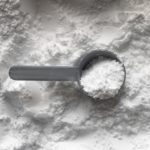Creatine, widely recognized for its use among bodybuilders, might also boost the effectiveness of talking therapy in treating depression, according to recent research.
The World Health Organization estimates that approximately 280 million people worldwide suffer from depression. Treatment options typically include psychotherapies, pharmacotherapies, or a combination of both. While these approaches can be highly effective for many, they do not work for everyone.
“Between one-third and one-quarter of patients do not respond to any antidepressant strategy or drop out of treatment due to ineffectiveness or side effects,” the study authors note. This highlights the urgent need to explore additional treatment avenues to help more patients find effective solutions.
When used alongside existing therapies, creatine could serve as a valuable tool in our mental health arsenal. This organic compound, found naturally in certain animal products and available as a supplement, is produced in the liver and brain and plays a crucial role in providing energy to cells—hence its popularity in sports and bodybuilding. Previous studies have indicated that creatine may have potential benefits for depression, showing promise in animal models and preliminary human trials that suggest it could enhance the effects of antidepressant medications.
Building on this emerging research, the latest study investigated the effects of creatine in combination with cognitive behavioral therapy (CBT), a talking therapy designed to help individuals manage their issues by altering their thought and behavior patterns.
The researchers hypothesized that “creatine could enhance the effects of CBT by promoting cognitive and behavioral functioning while also exhibiting a direct antidepressant effect,” noting that this had yet to be tested in a clinical trial setting.
To explore this, the team recruited 100 individuals in India with mild to severe depression who had not taken antidepressants for at least eight weeks. Initially, participants completed a questionnaire that provided a depression score, ranging from zero (no depression) to 27 (severe depression). The average score at baseline was 17.6, indicating moderately severe depression.
Participants were then assigned to one of two groups: one received 5 grams (0.2 ounces) of oral creatine monohydrate daily, while the other group received the same dosage of oral starch as a placebo. Both groups participated in biweekly CBT sessions.
After eight weeks, with 30 participants remaining in each group, depression scores decreased for both but significantly more in the creatine group. The average depression score in the creatine group dropped to 5.8 (indicating mild depression), while the placebo group scored 11.9 (indicating moderate depression).
“That’s actually a very, very large effect of creatine,” commented Brent Kious from the University of Utah, who was not involved in the study. “Definitely an effect that a patient would notice in terms of well-being.”
These findings suggest that creatine may enhance the antidepressant efficacy of CBT and was found to be safe and well-tolerated. However, the researchers emphasize the need for larger, longer, and more diverse trials to fully evaluate the effectiveness of creatine as part of depression treatment. If future studies confirm these results, creatine could become an effective and affordable addition to antidepressant strategies.
The study is published in the journal European Neuropsychopharmacology.
Transform your fitness journey with personalized coaching and accountability at Alpha Expat – where your goals become our mission!
With files from: https://www.iflscience.com/



